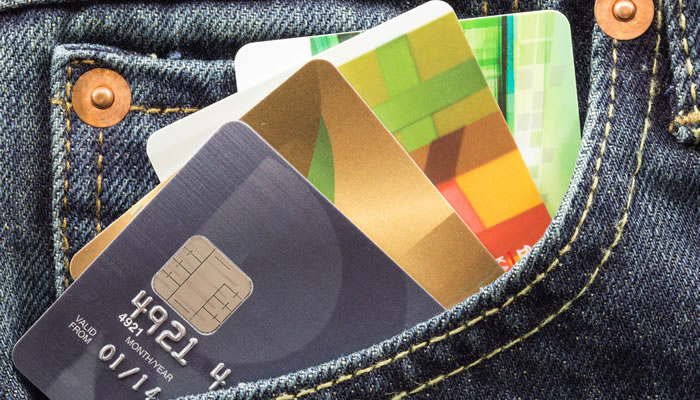Credit Cards vs. Debit Cards
At first glance, credit cards and debit cards may seem similar – they’re both made of plastic and act as cash substitutes. Although the two payment methods share similarities, there are some key differences consumers should be aware of.

Interac Debit is currently on a marketing blitz boasting the benefits of debt cards, so we thought it would be an opportune time to tell the other side of the story about the benefits of using your credit card over debit.
Cash Flow. One significant difference between credit cards and debit cards is the source of the funds. When you make a purchase on your credit card, you’re borrowing money from a bank or financial institution, but when you make a purchase with your debit card, the funds are withdrawn directly from your bank account. If you’re looking to maximize your cash flow, your best bet is your credit card, as long as you use it responsibly. Once you receive your credit card statement, you have a 21-day grace period. If you pay off your balance in full and avoid interest, a credit card is probably best.
Consumer Protection. Credit cards offer consumers enhanced protection on purchases. It may not be worth buying extended warrantees from retailers – credit cards offer extended warrantees on most new products at no extra charge. If you’re travelling out of country, credit cards offer insurance on rental cars and travel insurance. Although some debit cards offer these consumer protections, most don’t offer the same level of consumer protection you receive with credit cards.
Rewards. If you’re looking to get the biggest bang for buck when it comes to rewards, credit cards are the clear winner. While some debit cards offer one per cent cash back on purchases, there are many credit cards that offer a lot more. Not only do you receive a greater benefit when you use your credit card, you have more freedom to redeem your rewards points as well. You can choose between dozens of credit cards that offer points towards cash back, gift cards, and trips just to name a few. As long as you pay off your balance in full each month, credit cards are almost always better for rewards.
Risk of Fraud. Fraud is a major concern for consumers and rightfully so. Credit card fraud reached a staggering $439,363,617 in 2012, while debit fraud hit $38,500,000, according to the Canadian Bankers Association. That amounts to any average loss per account of $584.00 for credit card users, and $410.45 for debit card users.
Major credit cards like American Express, MasterCard and Visa take fraud very seriously, offering consumers the utmost in protection. These credit card companies offer cardholders protection beyond the legislated minimums. If your credit card is lost or stolen, or someone fraudulently uses your card, you can usually be reimbursed in full. Debit cards have a similar policy in place where you are not held responsible for unauthorized purchases, as long as you report your card lost or stolen immediately. The only difference with debit is that the thief has direct access to your bank account and can withdraw money – with a credit card they don’t have that luxury, leaving you better protected.
As you can see, there are advantages to using credit cards over debit cards in some situations. If you use your credit card when making purchases you can take advantage of these benefits, as long as you use credit responsibly and pay your balance in full every month.




